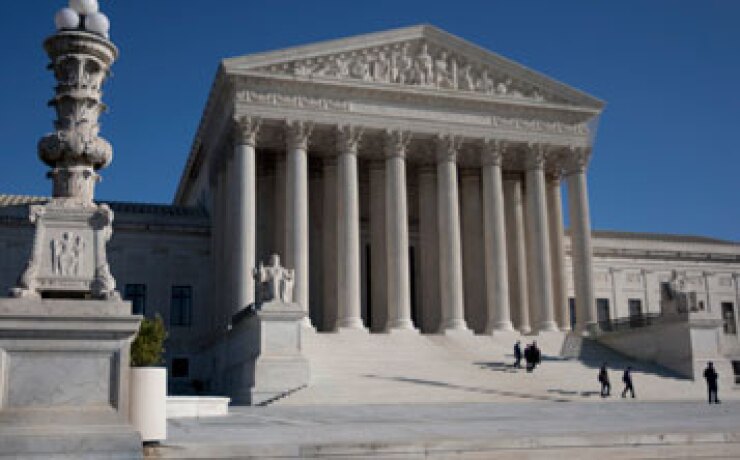The Supreme Court dealt hedge funds and other big investors a blow Tuesday by refusing to revive core parts of lawsuits that challenged the federal government’s capture of billions of dollars in profits generated by Fannie Mae and Freddie Mac.
The justices provided no comment on why they rejected appeals filed by Perry Capital LLC, Fairholme Funds and other Fannie and Freddie shareholders. The rebuff leaves intact a federal appeals court
The disputed move, known as the “

Some classes of Fannie and Freddie’s preferred shares fell as much as 5% Tuesday, while the companies’ common shares rose about 4% as of 9:50 a.m. in New York.
The appeals court ruling from last year said a 2008 law barred federal judges from hearing most shareholder claims over the companies’ bailout. The law created the Federal Housing Finance Agency, which became the conservator of the two companies and was largely insulated from legal claims. The ruling said the funds could pursue some contract-based claims before a federal judge in Washington.
In addition to those contract-based claims, the hedge funds and other investors have several cases ongoing around the U.S. though most of them are still in early stages. The funds have been allowed limited discovery in the U.S. Court of Federal Claims and they say the discovery shows the government lied when it decided to sweep Fannie’s and Freddie’s profits. However, no court has yet said that the government’s motives even matter, and the only courts to rule so far have dismissed the cases.
“Although we are disappointed by the court’s order today, we remain confident that we will ultimately prevail in reversing the illegal nationalization of Fannie and Freddie,” said David Thompson, an attorney for Cooper & Kirk who represents Fairholme and other investors.
Attorneys for Perry Capital and the class plaintiffs didn’t immediately respond to requests for comment. A Justice Department spokeswoman declined to comment.
The net worth sweep, in place since January 2013, let the U.S. recoup even more than the $187 billion in taxpayer money it spent to stave off collapses of Fannie and Freddie. The hedge funds say the government has seized $130 billion more than it was entitled to.




